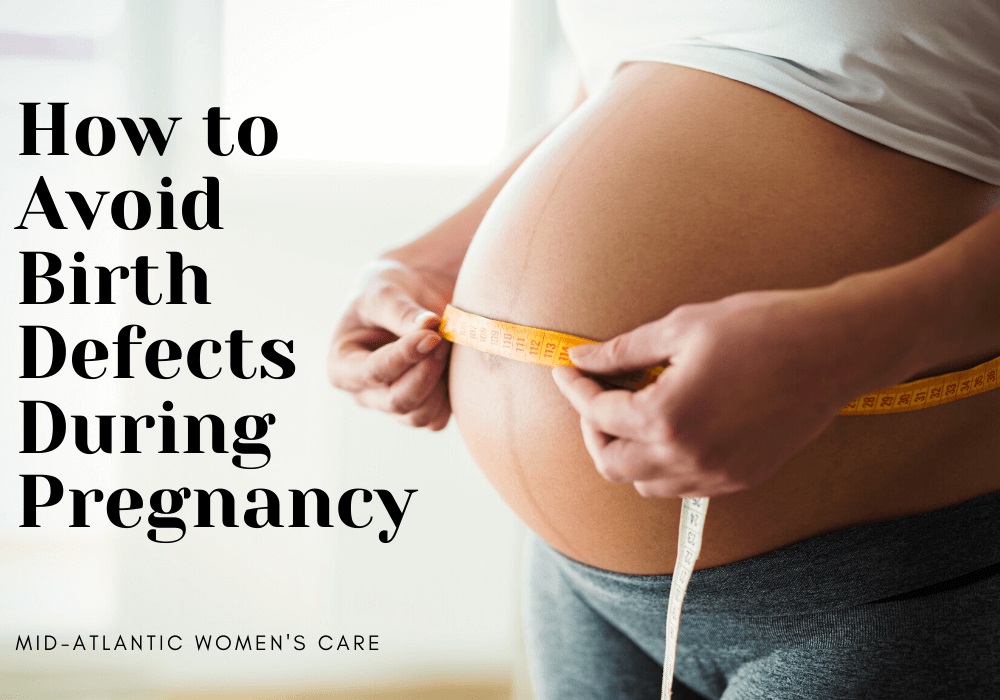Now that you’ve found out you are pregnant (congratulations!), you probably are making every effort to ensure that you give birth to the healthiest baby possible. While not all birth defects can be prevented, women can increase their chances of having a healthy baby by maintaining healthy conditions and adopting healthy habits before becoming pregnant that she carries into the pregnancy.
Before moving on, let’s clarify what a birth defect is. Birth defects are problems that occur during the baby’s development during pregnancy. Birth defects can affect different aspects of the child including their brain function and development, physical appearance, and organ function. Most defects occur during the first trimester which is why it’s so important to develop healthy habits prior to becoming pregnant.
What causes birth defects?
There are some birth defects whose exact cause is unknown but there are certain birth defects where the result in the fetus developing improperly can be determined by the following factors:
- Genetic mutations
- Smoking while pregnant
- Consuming alcohol while pregnant
- Sexually transmitted diseases
- Mother of an older age
- Using illegal drugs
- Obesity of the mother
- Uncontrolled diabetes
- Inadequate prenatal care
Many defects can be identified during pregnancy with prenatal ultrasounds. If your OBGYN sees something of concern that could mean an issue with your baby’s development, they’ll order additional screening.
Taking steps to prevent birth defects
While again, not all birth defects can be prevented, there are some steps women can take during pregnancy to reduce their risk.
Step #1: Do not smoke, drink, or do drugs
Drinking alcohol, smoking, and using illegal drugs can cause fetal alcohol syndrome, premature birth, stillbirth, cleft lip, sudden infant death syndrome, brain damage, low birth weight, or neonatal abstinence syndrome.
Step #2: Look for solutions to existing health problems
If you’ve previously been diagnosed with a chronic health condition including diabetes, epilepsy, high blood pressure, or HIV, speak to your doctor about managing that condition during your pregnancy. These conditions can raise your risk of stillbirth, miscarriage, birth defects, or premature birth.
Step #3: Maintain a healthy body weight
There seems to be the common thinking that when a woman is pregnant, she is now eating for two. And while this may be true, there is no reason she should double the amount of food she eats. Gaining too much weight during pregnancy can lead to complications including high blood pressure and gestational diabetes and it can increase the likelihood that your child will develop diabetes during childhood.
Step #4: Eat healthy
In addition to maintaining a healthy body weight, now is the best time to make sure you are eating foods with high nutritional value. Foods that are high in folate like leafy green vegetables, avocado, and brussel sprouts are great because folate is essential in developing the red blood cells and preventing birth defects. For a list of foods to avoid during pregnancy, check out our blog post.
Step #5: Stay hydrated
Babies receive nutrients through the amniotic fluid during pregnancy which is essential to the healthy development of the baby’s lungs and digestive system. The mother must stay hydrated in order to ensure there is an adequate amount of amniotic fluid surrounding her baby.
Step #6: Exercise
Regular exercise throughout pregnancy is essential to maintaining a healthy weight and decreasing the mother’s risk of developing gestational diabetes. Women should, however, speak to their OBGYN to ensure they are leading an active lifestyle while making modifications to keep the baby safe.
Step #7: Get adequate prenatal care
As soon as you find out you’re pregnant, you should schedule an appointment with your OBGYN with the first prenatal visit falling around eight weeks after your missed period.

